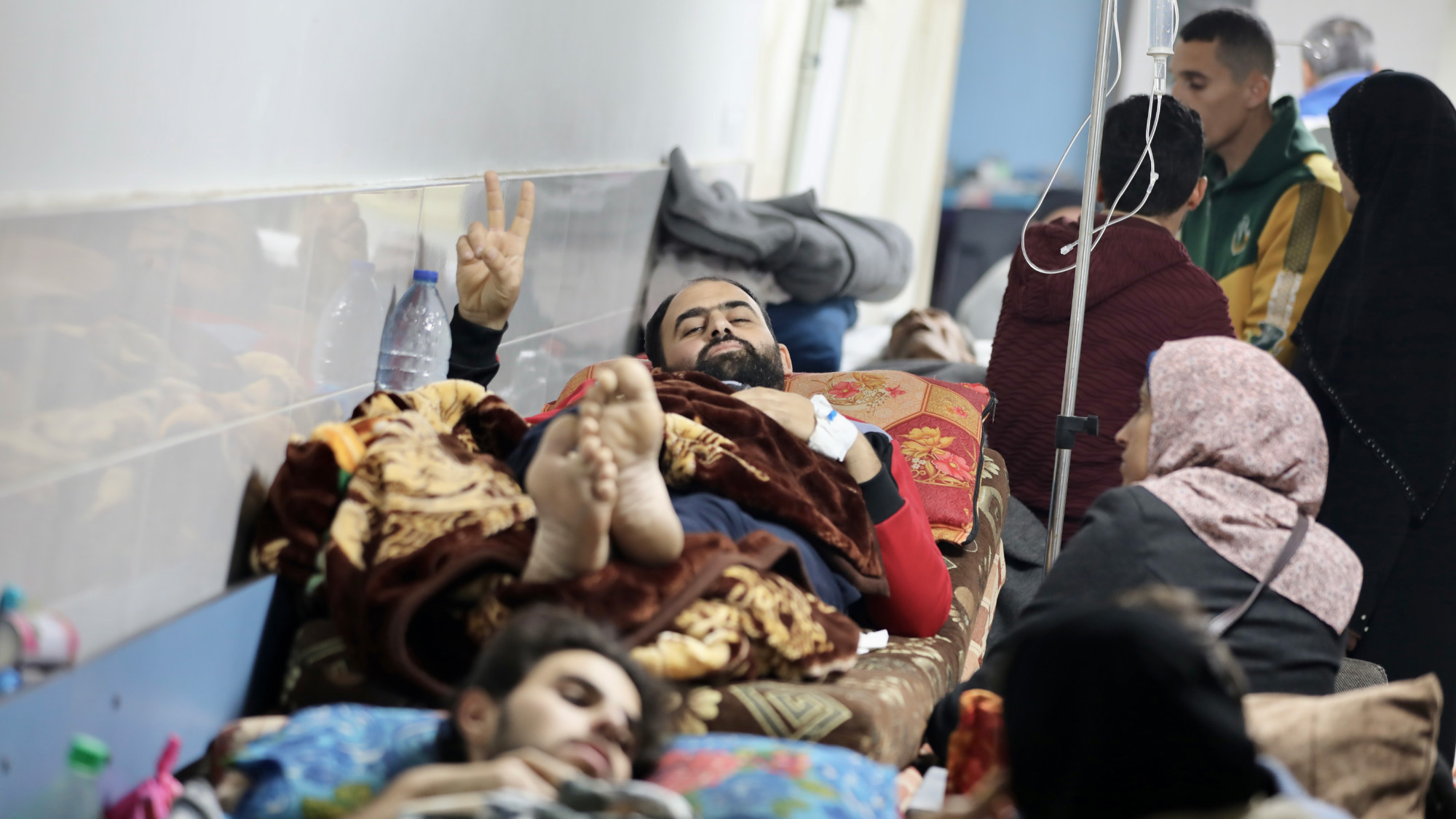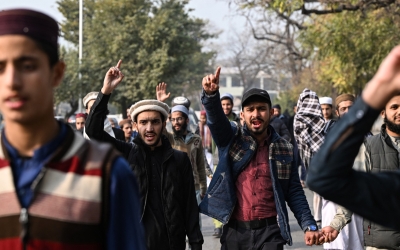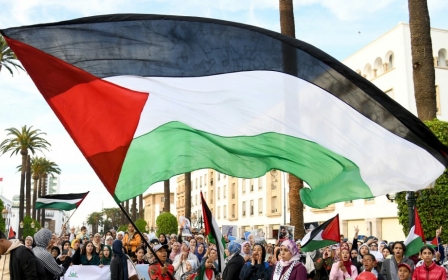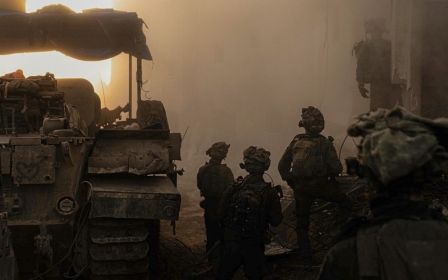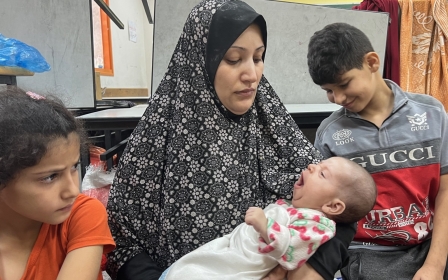War on Gaza: Palestinians fear ground raid on Nasser Hospital
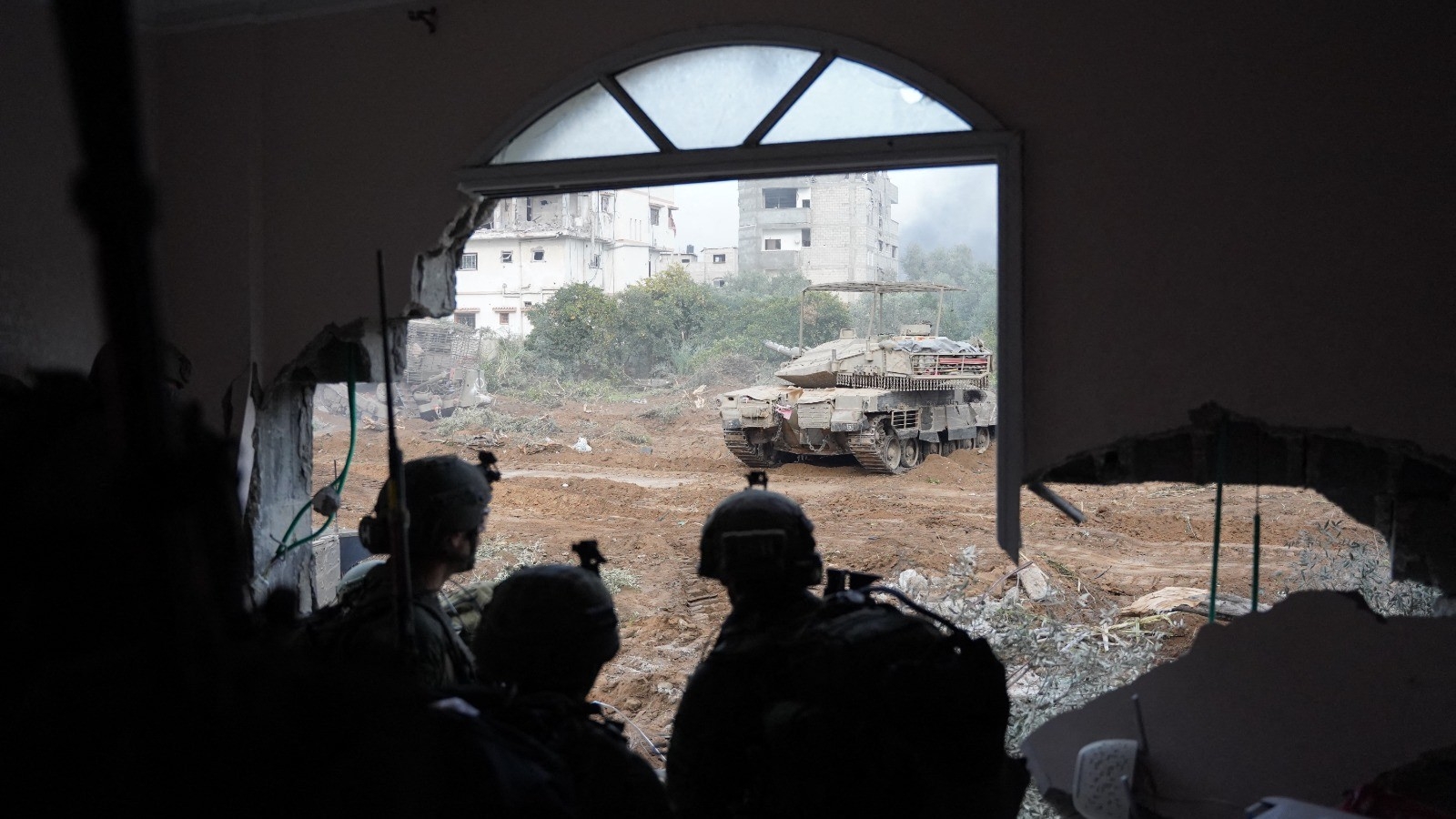
Two consecutive nights of heavy Israeli bombardment in the vicinity of the biggest hospital still functional in the Gaza Strip has left Palestinians increasingly worried about a potential ground raid on the medical facility.
The area around Nasser Hospital in Khan Younis, southern Gaza, has come under relentless attack from Israeli jets and tanks since Tuesday.
"The situation in Khan Younis city is deteriorating rapidly as the bombardment intensifies, particularly during the night hours," Wejdan, a 24-year-old Palestinian displaced in Khan Younis, told Middle East Eye.
"People are afraid Israel will invade the hospital, as they did in the north of Gaza. Therefore, they are fleeing the hospital compound towards Rafah and Al-Mawasi on the southern Gaza coast.
"We are unable to go to the local market anymore, as it is too close to the hospital," he added.
New MEE newsletter: Jerusalem Dispatch
Sign up to get the latest insights and analysis on Israel-Palestine, alongside Turkey Unpacked and other MEE newsletters
Mohammed al-Agha, who is displaced with his family in southern Gaza's Al-Mawasi, said there had been a massive influx of people coming to the area from Nasser Hospital.
But he warned that with a lack of space, food and medicine, the humanitarian situation was worsening.
"We are experiencing starvation and disease is spreading," Agha told MEE. "A humanitarian crisis, similar to the one in Rafah, is reaching extreme levels in Al-Mawasi."
In Rafah, the pre-war population of 300,000 has increased to 1.2 million since 7 October, according to Unrwa, the UN agency for Palestinian refugees.
Al-Shifa hospital barely functioning
Palestinians fear the attacks around Nasser Hospital could be a prelude to a wider assault on the facility, similar to the targeting of al-Shifa hospital to the north last year.
Al-Shifa - previously the largest medical complex in Gaza - has been turned into nothing more than a first aid station due to months of Israeli attacks.
MEE found that within the facility, most services had been shuttered, including surgery and X-ray departments, as well as operation rooms.
Only a few volunteers remain to provide basic medical care, after many specialists and nurses were either arrested or forced to flee.
Wounded people continue to be brought to the hospital, but complex operations are impossible to perform.
In recent days, Israeli forces have increased attacks in Gaza City after two weeks of relative calm in northern Gaza, raising fear for those in the city who have little to no access to medical care.
Among the targets in the city was a Palestinian university that was destroyed with mines.
In a statement on Thursday, Israa University said the blowing up of its main buildings by Israeli forces was "barbaric aggression" forming part of an Israeli policy against Palestinian education.
It added that soldiers occupied the university buildings for 70 days, turning it into a military base to detain and interrogate civilians, as well as using it as a station for snipers to shoot at unarmed people in the area.
Before the building was blown up, valuable contents, including rare artefacts, were stolen by soldiers, it added.
Israel added to list of 'world's worst jailers of journalists'
Among those killed in central Gaza on Thursday was journalist Wael Fanounah, the government media office in Gaza said.
Fanounah, the manager of Al Quds Today TV, became the 119th Palestinian journalist killed by Israel since 7 October.
The Committee to Protect Journalists (CPJ) said on Thursday that Israel was for the first time included in its annual list of the world's "worst jailers of journalists".
Israel was in sixth place globally, after imprisoning 17 journalists in the occupied West Bank following the outbreak of war.
“Israel’s standing in CPJ’s 2023 prison census is evidence that a fundamental democratic norm - press freedom - is fraying as Israel exploits draconian methods to silence Palestinian journalists. This practice must stop,” said Jodie Ginsberg, CPJ’s chief executive.
Elsewhere in the occupied West Bank, Israeli forces shot and killed a Palestinian man during an operation in the city of Tulkarm.
Two refugee camps in the northern West Bank city, the Tulkarm and Nur Shams camps, were under Israeli assault for over 24 hours.
Arab nations 'create plan for Palestinian state'
At the World Economic Forum in Davos, Israeli President Isaac Herzog stated on Thursday that Israel "must fight terror with no mercy".
He said he was not shying away from the human tragedy in Gaza, but that Israel "needs to defend itself from terror".
Normalising relations with Saudi Arabia is "key to exit from war into a new horizon," he added.
The Financial Times reported on Thursday that Arab nations had developed a plan to put an end to Israel's war in Gaza and create a Palestinian state.
The plan may include normalisation of relations between Saudi Arabia and Israel if it agrees to "irreversible" steps towards the establishment of a Palestinian state.
Arab states discussed the plan with the US and European governments, as it may include a call for western states to formally recognise the Palestinian state, or vote to grant it full membership at the UN. The plan is expected to be presented in the coming weeks.
Middle East Eye delivers independent and unrivalled coverage and analysis of the Middle East, North Africa and beyond. To learn more about republishing this content and the associated fees, please fill out this form. More about MEE can be found here.


